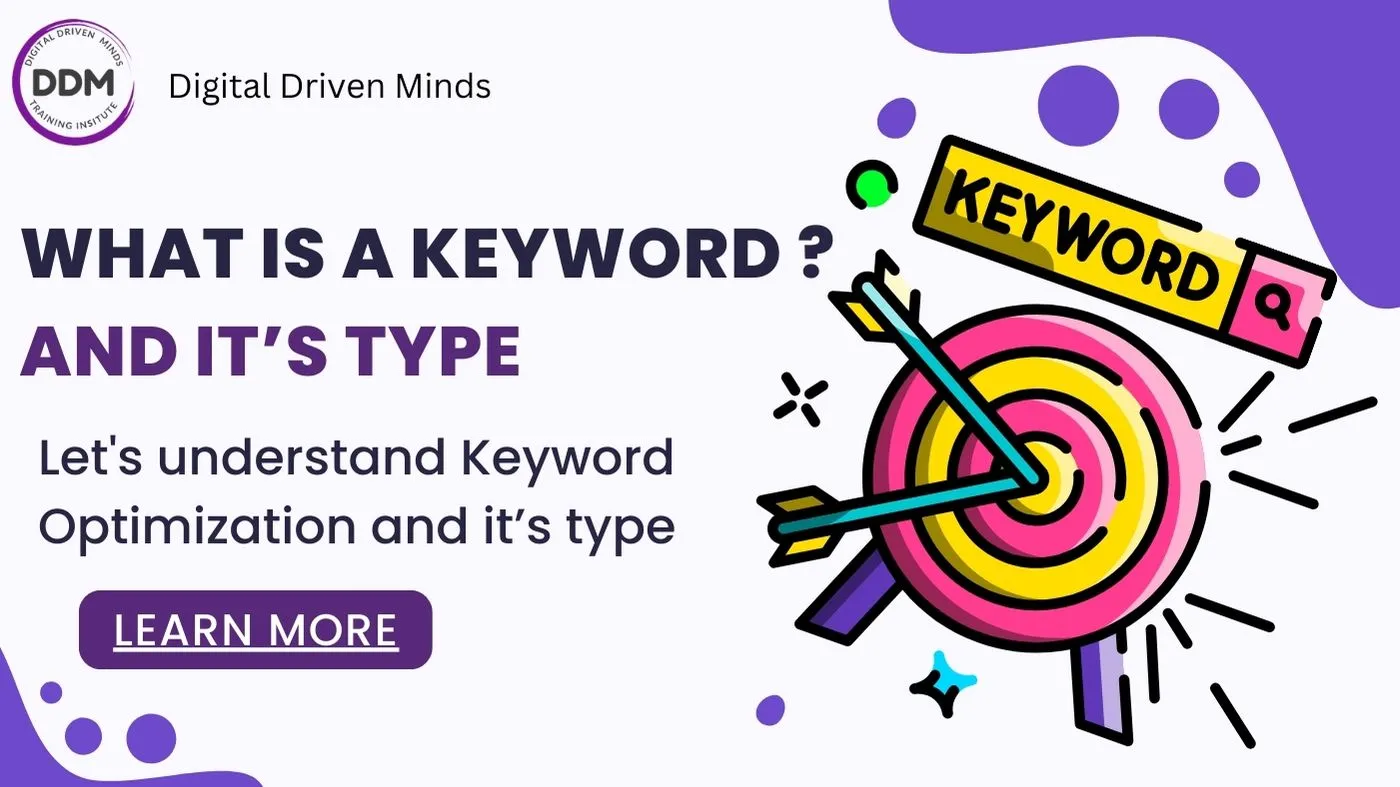What is a Keyword, its types, and its importance in SEO?
A keyword is a specific term or phrase that people use to search for information, products, or services online. Keywords are important in digital marketing and search engine optimization (SEO) because they help connect potential buyers with relevant content. When a user enters a keyword into a search engine such as Google, the engine searches its index and returns the web pages that are most related to that query.
Types of Keywords
- Short- Tail Keywords:-
This is the first type of keyword is the Short-Tail Keyword. These are broad and general search terms, usually consisting of one or two words, such as "shoes" or "digital marketing." Although they generate high search volumes, short-tail keywords are highly competitive and may not always yield high conversion rates due to their vagueness.
- Long-Tail Keywords:-
More specific and detailed, long-tail keywords usually consist of three or more words, such as "best running shoes for women." While they attract less traffic, long-tail keywords often have greater conversion rates since they target a more specific audience.
- Exact Match Keywords:-
These are keywords that exactly match a user’s query. For example, if your keyword is "buy leather boots," your content is optimized for that exact search phrase. This helps in driving precise traffic but can limit visibility for similar variations.
- Board Match Keywords:-
These keywords match the meaning or intent of the search rather than exact words. For example, if your keyword is "buy shoes," your content might appear for searches like "purchase footwear" or "shoe stores."
- LSI Keywords:-
Latent Semantic Indexing (LSI) keywords are terms that are related to your main keyword. They assist search engines to better understand the context of your content. For example, if your main keyword is "digital marketing," related LSI keywords might include "SEO," "content marketing," or "PPC."
Importance of Keywords in SEO
- Improving Search Engine Rankings:-
The primary purpose of keywords is to help search engines understand what your content is about. By integrating relevant keywords strategically throughout your content, meta descriptions, and headings, you can signal to search engines that your page is valuable and relevant to specific queries. This increases the likelihood of ranking higher on search results pages, directly influencing the traffic your site receives.
- Targeting the Right Audience:-
Effective use of keywords allows businesses to connect with their ideal audience. When people search for specific phrases, they are typically looking for solutions to their problems. Optimizing your website with relevant keywords attracts consumers with high intent, leading to higher conversion rates.
- Content Optimization:-
Using a combination of short-tail and long-tail keywords ensures your content meets user search intent while also catching a range of search volume and competitiveness. Long-tail keywords are especially important for attracting more targeted and less competitive searches, which can lead to increased engagement and relevancy.
How to Do Keyword Research: A Step-by-Step Guide
- Understand Your Audience and Goals:-
The first step in effective keyword research is understanding your audience and business goals. Determine who your target audience is, what they are searching for, and what problems your products or services can solve. Knowing your audience’s needs allows you to select relevant keywords that drive quality traffic.
- Brainstorm Initial Keywords:-
Start by creating a list of basic keywords relevant to your sector. These could be the services, products, or themes that your company offers. Consider the search terms your target audience may use to find solutions in your niche.
- Use Keyword Search Tools:-
Use tools like Google Keyword Planner, Ahrefs, or SEMrush to determine the search volume, competitiveness, and variants of your keywords. These tools can also help you find long-tail keywords, which are more particular and less competitive.
- Analyze Competitor Keywords:-
Look at the keywords that your competitors are ranking for. This can reveal potential gaps in your plan and fresh opportunities. Tools like rank tracker and Google keyword planner can help you examine competition keywords and uncover good ones for your content.
- Focus on Search Intent:-
Keyword research should align with search intent—what users are trying to achieve with their searches. Ensure your keywords match the user’s intent, whether it’s informational, navigational, or transactional, to provide the most value.

